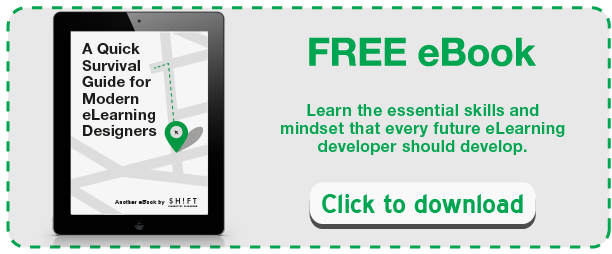INTRODUCTION:
You may be an eLearning professional, but the subject matter expert or the SME actually flags off your course by providing the all-important content for you and your team to sculpt on. The SME may be a software programmer or a marketing analyst in your company, a professor, doctor, or a best-selling author who has penned books of encyclopedic proportions on the course matter. Whoever may be the SME, it is likely he is not your cubicle mate. You will probably get just a few opportunities to glean relevant content from him. So take the smart route to make the most of an SME interview. Here we will review the key steps you can take before and during, the interview to maximize its effectiveness.

Preparing for the Interview
After you schedule a meeting with the SME, send him the agenda. Specify why you want to meet him and the kind of information you expect him to provide. If the SME knows what content you expect from him, he might bring along his notes or presentations to share with you. Your notes will also help him prepare mentally for the meeting; SMEs too can feel jittery at the thought of being interviewed!
Do your homework, so you ask the right questions and get the information that would be most helpful for your learners. Here's how you should prepare for the interview:
- Read up as much as you can on the topic. You don't have to impress the SME; after all, he is the authority on the subject. But you can pack in much more within the interview duration if the SME doesn't have to explain every single jargon or concept to you. Besides, he will share his knowledge more enthusiastically when he realizes you share his passion for the subject.
- Prepare a detailed questionnaire for the SME. This questionnaire will help you keep the interview focused and prevent your SME from turning it into an all-I-can-dump-on-you session. After all, you don't want to take copious notes on topics that do not align with the learning objectives of your course.
- Carry a camcorder or Dictaphone to the interview. But ask the SME's permission before you record him. Here are some other tools for recording interviews.
Preparing the Questions for the Interview
Ensure you don't miss asking the critical questions. Asking the right ones can help you extract the "need to know" information you need to make a course meaningful. Prepare the questionnaire keeping in mind the following pointers:
- Ask specific questions. You know the learning objectives of the course. You also have an idea of what or how the learner is expected to perform after he completes the course. So you know what your learner needs to know. Now frame the questions for the SME. If you do not ask specific questions, the SME might go off track and end up giving you a lot of "Nice to Know" information that you cannot use in the course.
- Ask open-ended questions. After you have guided the SME to a topic, let him take charge by asking open-ended questions. This ensures you can glean maximum information from the SME without having to learn about sundry other inconsequential topics in the process. You might even stumble upon interesting insights into the topic by letting the SME lead the way.
- Ask about the difficulties a learner may face while learning. Because the SME has studied the subject, he knows all about the learning pain points. If the SME you will interview has training experience, ensure you ask him about his classes. Quiz him closely on how he explained certain topics—the examples or scenarios he used—and the common questions posed by the learners.
- Ask about the performance mistakes that a typical learner may commit. The information you thus obtain might give you ideas about Job Aids that you can include in the course.
If you need some ideas of questiosn to ask read through this articles:
- Questions to ask SMEs when developing e-Learning Objectives
- 5 Questions to Ask Your Subject Matter Expert Before Starting an eLearning Project
- Anatomy of a Subject Matter Expert Interview
- Working with Subject Matter Experts
During the Interview
The SME will do most of the talking during the interview, but you must ensure that all of it makes sense. Afterwards, the SME will probably not be around to answer your queries.
- Encourage your SME to explain with diagrams. If the SME is talking about processes or systems, request him if he can explain using simple diagrams. These diagrams will not only simplify the topic but will also serve as resources your graphic artists can refer to afterwards when developing the course. You might want to have a whiteboard handy. Ensure you photograph the diagrams.
- Request your SME to explain his use of terms like "check" and "ensure." As the SME explains processes or a sequence of events, he might use words like "check" and "ensure." These might be obvious to someone who knows the subject, but your learners may not know what to check. Clarify, so you don't leave out critical information in your course.
- Clarify, clarify, clarify. Paraphrase what the SME has explained to you and repeat it to him. You cannot develop a course for your learners if you don't get a hang of the topic.
CONCLUSION:
Put yourself in the shoes of your learners when you prepare for your interview with the SME. During the interview, picture yourself as a student who is attending a lecture and has to reproduce the learning in an examination.








